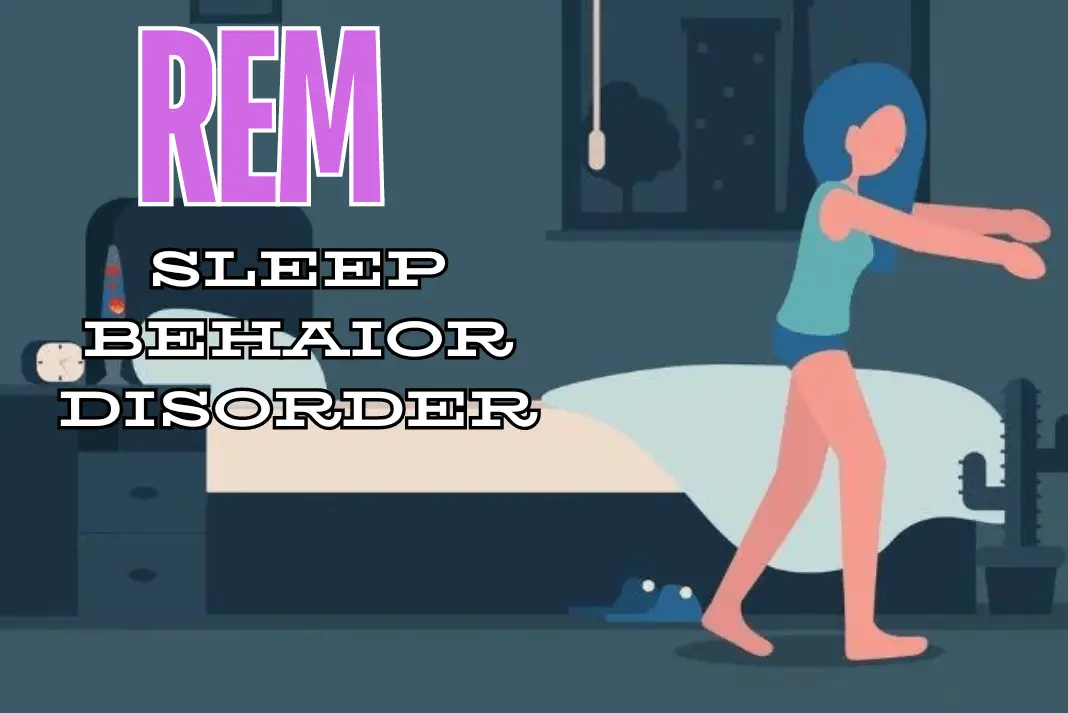REM Sleep Behavior Disorder (RBD) is a sleep disorder that influences many humans all over the world. It causes them to physically act out their dreams during REM (rapid eye movement) sleep. This can result in risky behaviors, including talking, kicking, or hitting while asleep. If left untreated, it could cause accidents or disrupt sleep quality.
Fortunately, there are REM sleep behavior disorder treatment options available to control RBD signs. In this guide, we’ll explore the treatments of REM sleep behavior disorder to create a safe sleep environment. It includes sleep medicines, lifestyle changes, and treatments that can help enhance sleep quality and overall well-being.
Table of Contents
What is REM Sleep Behavior Disorder (RBD)?
REM Sleep Behavior Disorder (RBD) is a sleep problem in which people move or talk while they’re dreaming. It is referred to as a Neurodegenerative disorder. Sleep study shows that during regular sleep, the body is relaxed and calm, but with RBD, the muscles stay active. This makes someone act out their dreams. It can include kicking, punching, or shouting. These movements may cause a risk of injury, both to the person with RBD and everybody sleeping near them. Rapid eye movement sleep behavior disorder (RBD) often occurs in older adults and can be connected to different health issues, however, it can be dealt with the proper care and support.
What are the Symptoms of REM Sleep Behavior Disorder (RBD)?
People with REM sleep behavior disorder may show the following RBD symptoms. Early diagnosis and treatment are vital to reduce symptoms and promote healthy sleep.
- Acting out dreams while asleep, such as kicking, punching, or jumping.
- Talking, yelling, or shouting during sleep.
- Moving suddenly or violently in bed.
- Falling out of bed or hurting yourself or your partner.
- Waking up confused after acting out a dream.
- Difficulty remembering the dream clearly, but recalling parts of it.

What Causes REM Sleep Behavior Disorder?
REM sleep behavior disorder is a sleep disorder in which you physically act out of your dreams. It is the stage of sleep disorder that can be harmful. It is important to find out the causes associated with REM sleep behavior disorder for a personalized treatment for RBD.
- Neurological Conditions: Some brain diseases, like Parkinson’s or Lewy body dementia, can lead to RBD. They affect how the brain controls movement during sleep.
- Medications: Certain drugs, especially those used for depression or psychiatric conditions, might trigger RBD.
- Withdrawal: Stopping some medications suddenly can cause sleep issues, including RBD.
- Head Injury: Past injuries to the head or brain can sometimes be linked to RBD.
- Age: RBD is more common in older adults, though it can occur at any age.
- Genetics: In some cases, RBD can run in families, suggesting a genetic link.
Treatments for REM Sleep Behavior Disorder
Sleep specialists offer the following treatments for RBD. However, it is best to consult your mental health specialist for a personalized treatment plan according to your symptoms of RBD.
Medications
Medications can help reduce the signs of RBD. Drugs like clonazepam and melatonin are normally used. They help calm the mind and reduce movement during sleep.
Lifestyle Changes
Making a few changes in your daily routine also can help. This may consist of improving sleep habits, like creating a daily sleep routine and developing a relaxing bedtime habit.
Safety Measures
To save you from injuries, it’s essential to make the sleep environment safe. This includes getting rid of sharp gadgets, padding the bed, and putting boundaries across the bed to avoid falls.
Therapies
Therapies which include cognitive-behavioral therapy (CBT) can assist manage stress and anxiety, which would possibly remove RBD signs. Working with a therapist can offer additional coping strategies.
Addressing Underlying Conditions
If RBD is linked to any other health problem, treating that problem can also help. This means working with a healthcare provider to manipulate another disease or problems that might be contributing to RBD.

Tips for Better Sleeping
Here are some easy tips for better sleep hygiene:
- Stick to a Routine: Go to bed and wake up at the same time every day, even on weekends.
- Create a Calm Space: Make your bedroom a quiet, darkish, and calm space.
- Limit Screens: Avoid phones, tablets, and TVs before bedtime.
- Relax Before Bed: Try enjoyable activities like reading, taking a warm bath, or meditating.
- Watch What You Eat: Avoid heavy meals, caffeine, and alcohol before bedtime.
- Get Comfortable: Use a comfortable mattress and pillows that support you well.
- Stay Active: Regular workouts permit you to sleep better, but no heavy workouts near bedtime.
Conclusion
Managing REM Sleep Behavior Disorder (RBD) can make your sleep better and increase overall well-being. By understanding the symptoms and causes of RBD, you could take steps to find the right treatment option. Medications, lifestyle adjustments, safety measures, and treatment options can all play a role in controlling RBD signs and symptoms and improving your sleep.
Don’t forget to create a regular sleep routine to improve your temper and rest. If you or someone you know struggles with RBD, searching for help from a healthcare expert is a smart option. With the right method, you can get a good night’s sleep!!

